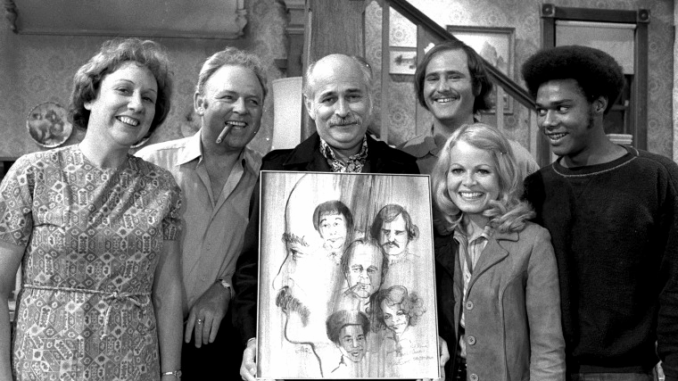
Long before streaming services and social media debates, one sitcom had the courage to put America’s toughest conversations on prime-time television. All in the Family, which debuted in 1971, didn’t just entertain — it challenged, provoked, and helped shift the national consciousness.
Pushing the Boundaries of Prime-Time Television
At a glance, All in the Family followed a working-class family in Queens, New York. But beneath the surface, it was anything but ordinary. The show addressed hot-button issues such as civil rights, gender equality, anti-Semitism, and the Vietnam War — all in the format of a 30-minute comedy.
The protagonist, Archie Bunker, represented a segment of America clinging to traditional values in a rapidly changing society. Through his clashes with his wife Edith, daughter Gloria, and liberal son-in-law Michael, the show created a forum for real-life generational and ideological tensions to play out on-screen.
The Power of Provocative Storytelling
What made All in the Family revolutionary was its honesty. Norman Lear and his team didn’t sugarcoat or shy away from controversy. Episodes tackled everything from menopause to racism, and viewers were often left laughing — and thinking — in equal measure.
The show’s writers used Archie’s ignorance not to endorse it, but to expose it. His character served as a vehicle for social critique, and viewers were forced to confront their own biases in the process.
National Reaction and Critical Success
The response to All in the Family was immediate and intense. Some viewers were outraged, while others were inspired. But no one could ignore it. The show sparked national debates, became the subject of academic studies, and set a new precedent for what television could achieve.
It also earned critical acclaim, winning over 20 Emmy Awards and cementing its place in history as a cultural landmark.
Influence That Spans Generations
Few shows have generated as many spin-offs as All in the Family, including The Jeffersons, Maude, and Good Times — each of which carried forward its legacy of fearless storytelling. Today, modern series such as Black-ish and The Conners owe part of their DNA to the path this show paved.
Even decades after it aired its final episode, All in the Family remains a staple in discussions about media’s role in social change. It proved that comedy could be more than just laughs — it could be a force for progress.
Final Word
All in the Family was not just a sitcom — it was a catalyst. With razor-sharp dialogue, unforgettable characters, and a fearless commitment to truth, the show continues to be remembered as one of the most important and daring television series ever made. Its legacy lives on, not only in syndication but in the continued relevance of the questions it dared to ask.
